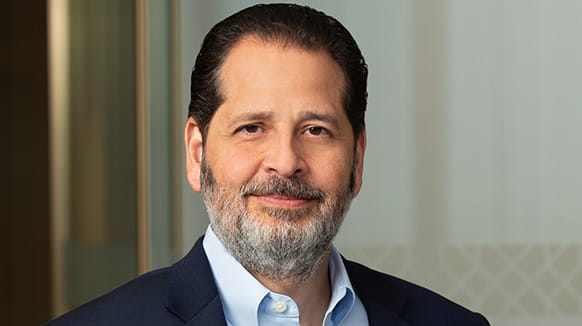On March 26, 2021, President Andrés Manuel López Obrador presented his proposed “Initiative to amend certain provisions of the Hydrocarbons Law” (the “Initiative”) to the Chamber of Deputies. The Initiative is subject to approval from both Chambers of the Congress before its publication and entry into force.
The purpose of the Initiative is to amend the current Hydrocarbons Law (“HL”) in various ways, as summarized below:
- The Initiative proposes an additional requirement to request permits for refining oil, processing natural gas, and various midstream and downstream activities including transport, storage, distribution, compression, liquefaction, decompression, regasification, commercialization, and retail of hydrocarbons, fuels and petrochemicals. Interested parties must prove they meet the minimum storage requirements determined by the Ministry of Energy (“SENER”).1
- As to the assignment of the permits mentioned above, the Initiative proposes to modify the effect of administrative failure to timely respond to and authorize or reject permit assignment requests. Under current law, if SENER or the Energy Regulatory Commission (“CRE”) is silent on and fails to issue the applicable authorization to the assignment of a permit within ninety days, the authorization is deemed to have been granted (such deemed grant is referred to as Afirmativa Ficta). Under the Initiative, the rule is reversed, and the silence or failure of SENER or CRE timely to respond to a request to authorize the assignment of a permit will be deemed to be a rejection of the application (such deemed rejection, “Negativa Ficta”).
- Among the causes for revocation of a permit provided in the HL, two cases are added: (i) the commission of the crime of hydrocarbons, fuels and petrochemicals smuggling, determined by a firm resolution of the competent authority, and (ii) the recurrent non-compliance with the provisions applicable to hydrocarbon sector. For example, recurrent non-compliance with the quantity, quality, and measurement of hydrocarbons and fuels2, with permit terms and conditions, or the modification, without authorization, of the permit’s technical conditions for the systems, pipelines, facilities, or equipment.
- The Initiative expands SENER and CRE’s current authority to allow them to issue, not only temporary suspensions, but also permanent suspensions of permits granted by them, as a mechanism to guarantee the interests of the Nation,3 and establishes that the corresponding authority may only contract with Petróleos Mexicanos (“PEMEX”)4 to guarantee the continuous operation of the activities covered by the suspended permit.
- SENER and CRE will have additional like authority to suspend permits permanently if they determine the existence of an imminent danger to national security, national energy security, or the national economy.
The suspension will have the duration that the corresponding authority determines and, in order to guarantee the continuity of operations, the authority will take control of the administration and operation of the permit holder, being able to use the personnel that the permit holder had been using, hire a new operator, or use a combination of the above.
Lastly, in accordance with the transitory articles of the Initiative, upon entry into force:
- SENER or CRE, as applicable, will revoke all permits that fail to comply with the storage requirements determined by SENER5.
- SENER or CRE, as applicable, will leave without legal effect all permits that have expired due to the permit holder’s failure to exercise the rights under the permit during the term provided in the permit or, in the absence of a stated term, for a consecutive period of three hundred and sixty-five calendar days (one year).
- SENER or CRE, as applicable, will revoke all permits as to which it is demonstrated that the permit holders are in breach of the permit conditions or the provisions of the HL.
The Initiative, if approved by Congress, may have a significant impact on the development of the midstream, downstream, and retail sectors of Mexico’s oil and gas industry, because it proposes new elements for the revocation of permits, expands administrative authority to issue temporary or definitive suspensions for reasons of national security, energy security, or to protect the national economy, in which case the authority could take control of permit holder’s operations. The Initiative, however, does not address issues of compensation to permit holders in the event of temporary or permanent suspension and takeover of operations.
In addition, the application of the Negativa Ficta in the assignment of permits could negatively affect certain corporate and financial operations (such as mergers, asset sales, and bankability to finance these projects).
To read en español, click here.
For more information, please contact any of the attorneys listed below.
1 These standards are currently determined in the Minimum Storage Public Policy issued by SENER on December 12, 2017 and its later amendment released on December 6, 2019.
2 Currently, regulated by the Mexican Official Standard NOM-016-CRE-2016, Quality specifications of Fuels, the Guidelines regarding measurements applicable to the storage of oil, fuels and petrochemicals, and the Guidelines regarding measurements applicable to pipeline transportation of hydrocarbons, fuels and petrochemicals.
3 Currently, the provisions of article 57 of the HL only include a temporary occupation or an intervention by the authorities.
4 The current HL provides that CRE or SENER may contract with PEMEX or third parties with technical capacity to control and operate the facilities in case of an occupation or intervention.
5 Requirements established by the Minimum Storage Public Policy issued by SENER.




